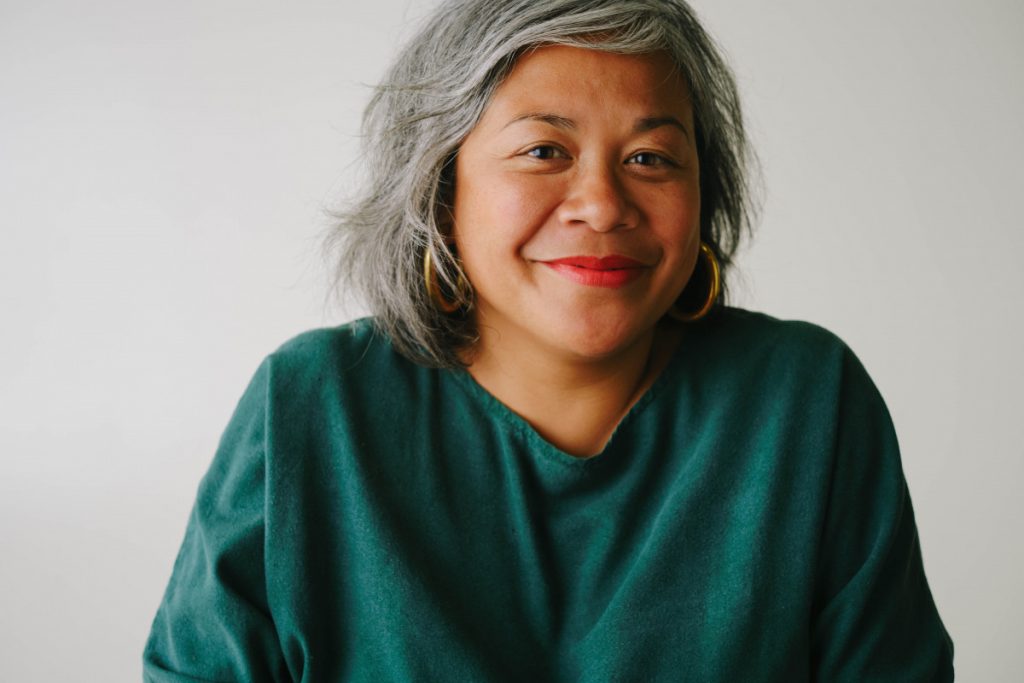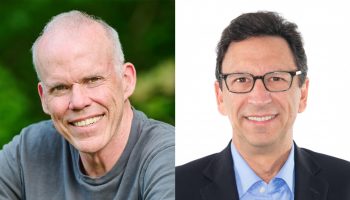
Arden Ryan
contributing writer
America relies on the work of caregivers just as much as it relies on professional work. Yet that domestic labor, that “essential labor,” is not being equally supported.
Angela Garbes, author of Essential Labor: Mothering as Social Change, writes about motherhood and caregiving in modern society.
She said she believes the free domestic work underpinning American capitalism is being taken for granted.
At 10:45 a.m. today in the Amphitheater, Garbes will bring her knowledge and reflections on caregiving and mothering in America to the Chautauqua Lecture Series. Garbes will advocate for the value of parents in a society that “fundamentally devalues” women and parenthood, she said, specifically women of color in America.
The American capitalist system was established to and is intent on keeping women in the home, Garbes said. Women are prohibited from equal access to health care and family planning, so they may continue to “take care of the next generation of workers and consumers,” perpetuating an “inhumane” system. People of color specifically are “trapped in poverty,” by restrictions to childcare, producing more children all the while.
“To me, there’s a direct line between … a country that doesn’t value women … and a country that makes decisions about (women’s bodies) and about reproductive freedom,” Garbes said.
When the COVID-19 pandemic forced school closures, parents were stuck at home. The most privileged families realized that when outside caretakers weren’t available, they had to care for their children themselves, Garbes explained.
The first year schools remained closed, nearly 1 million women stepped out of the professional workforce in a single month — September 2020. Parents couldn’t keep up full-time jobs and also care for their home and children.
This reckoning revealed deep cracks in the care system, coupled with the pandemic, making income disparity as apparent as ever. People are coming to realize that life in the current moment isn’t working in everyone’s favor, Garbes said.
“Women of color specifically are overrepresented in service jobs,” Garbes said, at places such as restaurants, beauty salons, childcare centers.
“In the early days of the pandemic, those places shut down, some of them never to reopen,” she said. “We saw the rates of unemployment for women of color skyrocket,” driving up economic inequality.
At the same time, the United States is lagging dramatically behind peer countries in support for family care, not guaranteeing access to affordable childcare or universal paid leave.
“I believe having health care and family leave are human rights,” Garbes said, and “what we need to exist fully in this world.” The majority of countries in the developed world provide for these rights, and “the United States does not. It’s a very specific culture that we’re living in.”
Garbes noted that a strong majority, eight out of 10 voting Americans, support paid leave policies and funding for in-home care. The issue reaches beyond party lines; a “caring majority” want to support care workers.
Yet “our politicians are failing us, the constituents,” she said. “Political promises (for affordable childcare) have not been fulfilled. That’s not individuals’ fault. I see families doing the most that they can.”
Supporting younger generations is crucial to the future of society, Garbes said, something which she feels the United States has yet to fully realize.
Countries that support “robust family leave understand that investments in family are investments in the future,” Garbes said, noting that “many issues could be solved, or at least significantly addressed and changed, by investing in people and families at a young age.”
Despite the weaknesses laid bare by the pandemic, Garbes’ most recent book, Essential Labor, was written “in the spirit of hope,” she said, speaking to a time in American life where people are coming to understand the insufficiencies of the care system and the ways it should be improved.
“We all feel care is an (individual) burden, when in fact, it’s actually a really unifying force. Everyone needs care,” Garbes said. “It’s possible for you to be doing what you’re doing today, because someone cared for you.”
Many people assume generally that “care needs are private,” she said, “individual responsibilities (one is) not supposed to talk about.”
However, talking about care more openly, communicating on an issue that can bridge divides, is just what is needed in this moment, Garbes said.
“Conversations about care … have great potential to unite people around ideas of what we need and deserve,” she said. Sharing stories of care can connect people on an “emotional, personal” level. She encourages everyone to have conversations about care, with which everyone can resonate.
As Garbes said, shared burdens make them “feel lighter, more manageable, like we can laugh and take a break while doing work together.”
She said she feels fortunate to have her parents close to home to “lean into” when needed for help with her children.
“I ask for help a lot, I accept help when it’s offered to me, and I ask how I can be of help to other people,” Garbes said, who finds a “cyclical” balance between providing care to her family while taking time for her professional career.
“I feel like when my community is doing well, I’m doing well,” she said. “And when I’m doing well, I have energy to put back into my community.”
Garbes said she will assert in her lecture that our society should grant people the time and space to provide care to all who need it, “some of the most important work that we can be doing.”
How does Garbes find care in her own life? By utilizing an extended network of friends and family members, with whom she trades off the responsibilities of childcare, carpooling together and watching each other’s kids.
“I allow my children to be cared for by other people, (who) welcome the opportunity to care for them,” she said, urging reciprocity with care duties.
“Once you start reorienting your life around not just caring for other people but being cared for, … it’s the best feeling in the world,” she said. “You just want more of it.”




